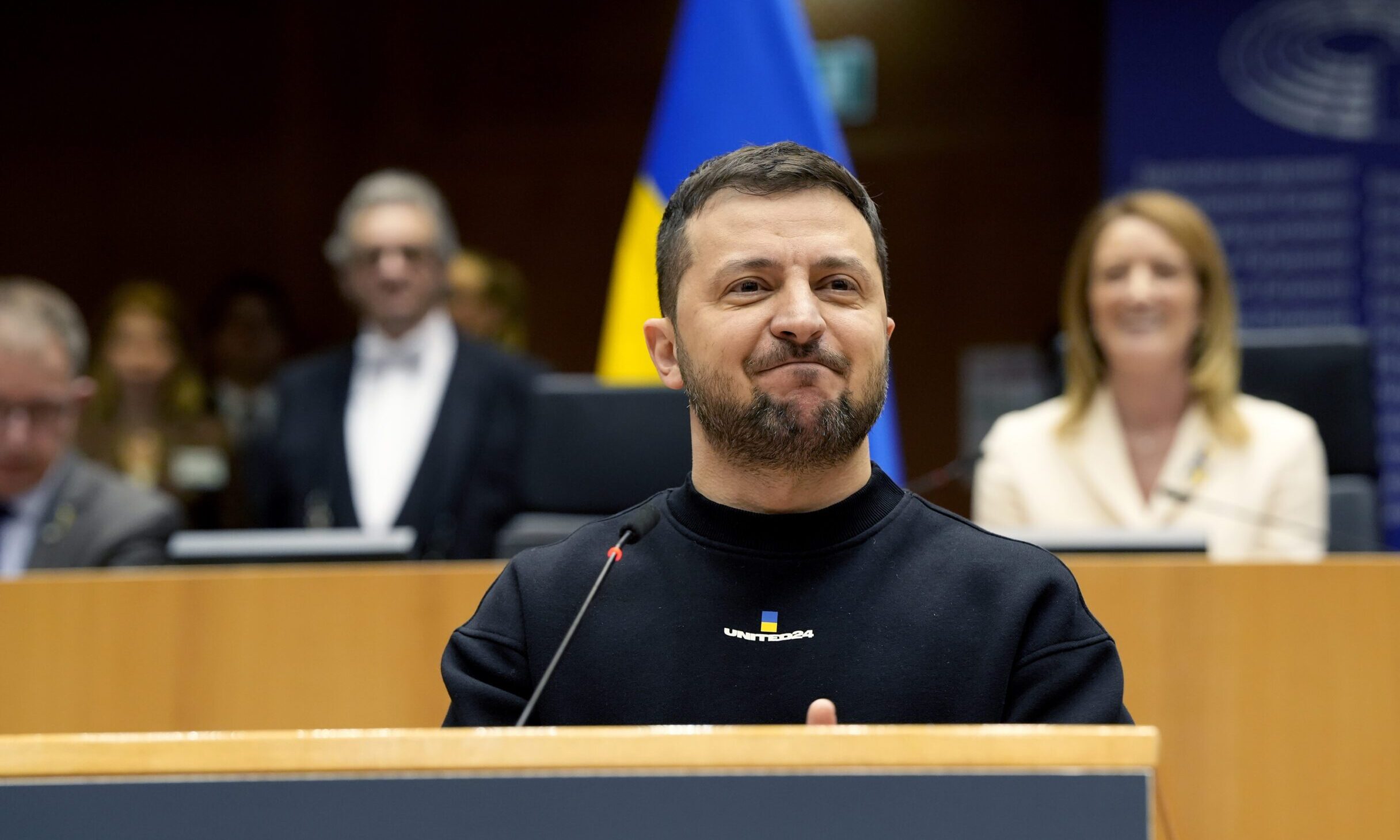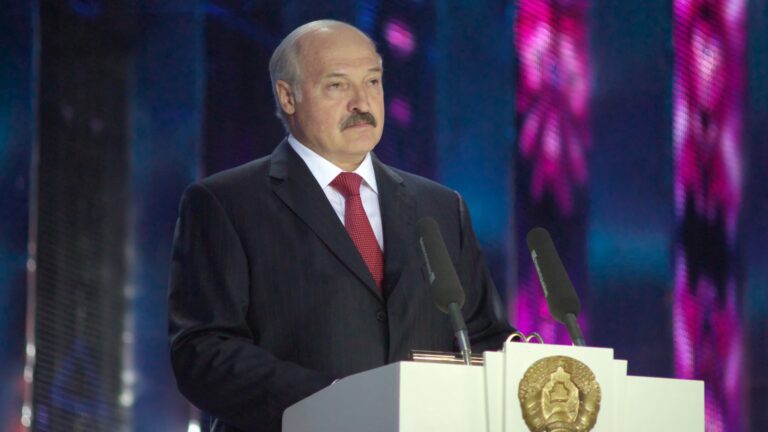
While recent shifts in the US position on Russia’s war against Ukraine have been met with considerable anxiety, leading to calls for rapid rearmament in Europe, Beijing has a radically different perspective. For China, the apparent fracturing of the longstanding US-European alliance – precipitated by the US talks with Russia about ending the war – may present an opportunity to advance its vision of “global multipolarity.” If Europe emerges from this turmoil as an independent center of power, this could help China usher in the new global order it envisions.
In 1997, a Sino-Russian joint statement declared the two countries’ aspiration for a multipolar world and the establishment of a new world order. At the time, this went largely unnoticed in the West. Since 2017, President Xi Jinping has repeatedly stated that “changes unseen in a century are taking place,” calling for efforts to seize this opportunity. Underpinning this assertion is a sense that the US global power is waning, creating space for China to reposition itself in the international system. Crucially, in Beijing’s vision of multipolarity, Europe would break free from US dominance to become an independent center of power on the global stage.
However, one aspect of Beijing’s attempt at global repositioning that is highly contentious in Europe is China’s stance on the war in Ukraine. As peace talks now loom on the horizon, it is more important than ever to understand what Beijing’s efforts to bring about a multipolar world could mean for both Ukraine and Europe.
Beijing’s View of the War in Ukraine
For Beijing, the war in Ukraine is yet another consequence of US global hegemony. When asked about Russia’s invasion, Chinese foreign ministry spokespersons have repeatedly shifted the conversation to the US’s role in various post-Cold War conflicts, such as those in Kosovo, Afghanistan, Iraq and Syria, pointing out how Washington “added fuel to the fire” or “fanned the flames” in these cases. By doing so, Chinese officials have framed the core problem in Ukraine as a geopolitical friction between the US and Russia.
From a European perspective, by taking this position while refusing to condemn Russia’s actions, China has sacrificed its stated commitment to respect the national sovereignty and territorial integrity of all states. From the very beginning of the war, Beijing has emphasized that “the Ukraine issue has a complex historical context” and that “the legitimate security interests of all states must be taken seriously.” By cautioning against the strengthening or expanding of military blocks, Beijing has implied that NATO expansion is the fundamental cause of the conflict. It follows from these statements that China agrees with Russia’s view that it has a right to oppose NATO’s eastward expansion, and thus by extension that Ukraine should not be allowed to join the alliance, which runs counter to NATO’s stated commitment to Ukraine’s eventual membership. In fact, declassified documents reveal that as early as 1997, Chinese officials privately expressed concerns about NATO expansion to their US counterparts, even while publicly supporting the aspirations of Central and Eastern European states to join the alliance. Overtime, Beijing has become more willing to openly express its opposition to NATO enlargement into Ukraine.
Indeed, this aspect of China’s position on the war in Ukraine is nothing new and fully overlaps with Russia’s view. It should not have been a surprise when, at the start of the war in 2022, Beijing refused to condemn Moscow. However, as the new US administration seems to be moving toward closing NATO’s door to Ukraine, the next question is how such a move might affect China’s position on the war.
A Glimmer of Hope for Ukraine
Although China has officially declared itself a neutral party with respect to the war in Ukraine, its position has been dubbed “pro-Russian neutrality” by sceptics, who have noted Beijing’s leanings toward the Russian side. At the same time, there are some positive signs for Ukraine as well. First, Beijing has already endorsed Ukraine’s participation in peace negotiations, with Chinese officials having declared both during and after the Munich Security Conference that Ukraine and Europe must participate in the negotiations, “as the war is taking place on European soil.”
Second, Beijing has emphasized its long-held principle of territorial integrity. Until now, Russia’s “legitimate security concerns” have compromised this principle with respect to Ukraine, forcing Beijing to balance Moscow’s concerns with its own principles. However, the removal of Ukraine’s NATO aspirations from the equation could force Beijing to reevaluate its own stance, at least formally. Beijing may try to justify Russia’s occupation of Ukraine’s internationally recognized territories by citing the “complex historical context.” It should, however, be emphasized that China has not recognized Russia’s annexation of Crimea, abstaining from voting on two UN resolutions regarding the peninsula’s annexation in March 2014.
Finally, there are indicators that China has its own interests in Ukraine that are not tied to those of Russia. In 2013, when President Xi introduced the Belt and Road Initiative, Ukraine took on new strategic significance. Chinese companies invested in ports, and there were discussions about potential investments in other areas, including in the uranium mining industry. After the annexation of Crimea, there were reports that China provided loans to Ukraine to purchase Chinese technology that would help the latter transition from Russian gas to domestic coal for power generation.
Ukraine’s role as a major grain exporter is another factor that could be crucial to China in the coming years, especially as the trade war with the US heats up. In 2013, Ukraine signed an agricultural lease agreement with COFCO – a major Chinese trading corporation focused on global agriculture and logistics – according to which agricultural products would be sold to China at preferential prices. Thanks to this agreement, by 2020 Ukraine had become the second largest supplier (after the US) of grain to China, accounting for 18 percent of all grain imports and the trade from that year valued at $1.85 billion. Given China’s increasing focus on securing sufficient agricultural imports, as emphasized in its “Document No. 1” issued in February 2025, it is in Beijing’s interest to maintain strong ties with Ukraine. Indeed, given Ukraine’s strength in this sector, we can assume China wishes to maintain its stakes there.
Prospects for Peacekeeping in Ukraine
China has so far refused to comment on the possibility of sending peacekeepers to Ukraine. However, during the Munich Security Conference, a retired Chinese colonel suggested that China could send a peacekeeping mission in cooperation with other non-NATO countries, such as India. Informal discussions in China emphasize that Russia does not support the presence of peacekeepers from either the US or any other NATO member, leaving open the possibility of peacekeepers from the Global South.
On the other hand, participation in a peacekeeping mission with soldiers from European countries (i.e., individual NATO members) would meet Beijing’s broader interest in having its soldiers gain experience working alongside peacekeepers from advanced countries. A NATO-led mission, such as KFOR in Kosovo, is clearly off the table for Ukraine. Yet, it may still be possible for Beijing to embrace the participation of peacekeepers from some European countries under the UN mandate.
China has historically deployed peacekeepers only under the mandate of a UN Security Council resolution, and this is unlikely to change regarding Ukraine. There are domestic concerns in China that the “Balkan scenario” could be repeated, where missions were conducted without UN authorization. Therefore, if China were to send peacekeepers, it would first need to negotiate a compromise within the UN Security Council.
The Road Ahead
If NATO membership is ruled out for Ukraine, Beijing will find itself at a crossroads where it will have to reconsider its position on the war vis-à-vis this new reality. With one of Russia’s major grievances removed, China could shift slightly closer to Ukraine. Nevertheless, this does not mean Beijing would support Ukraine against Russia. Beijing can still hide behind its usual argument that China is not a party to the conflict, and thereby avoid any definitive stance.
Ultimately, the key factor determining China’s position on Ukraine is its own interest. It cannot be emphasized enough that there are no sides for China to take and no allies to support. Instead, there are national interests, and China’s position on Ukraine will be determined according to these. For European leaders, this should be a key takeaway: Beijing’s advocacy for a multipolar world order is not about making new allies or preserving old ones – it is about reshaping the international system to better serve its own strategic objectives.
This article is based on research supported by JSPS KAKENHI Grant Number 20K13441. Any opinions, findings, and conclusions or recommendations expressed in this material are those of the author and do not necessarily reflect the views of the author’s organization, JSPS or MEXT.
Written by
Vida Macikenaite
VidaMaciVida Macikenaite is an Assistant Professor at the Graduate School of International Relations, International University of Japan. Her research focuses on Chinese foreign policy and international relations in the region surrounding China.


